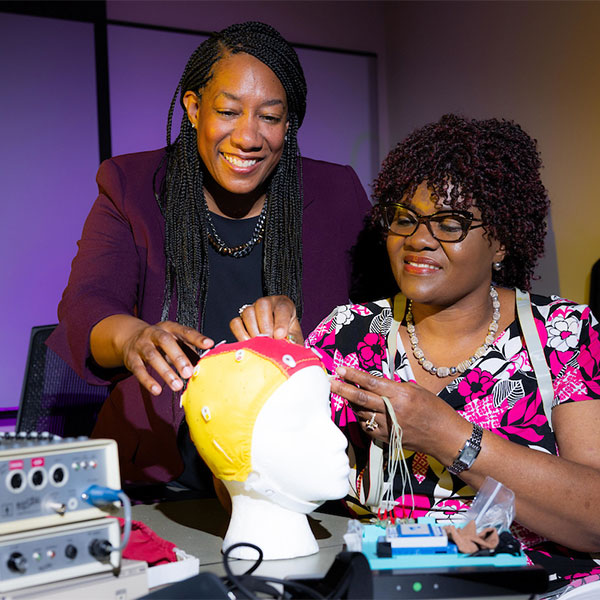About the BrainLab
The BrainLab was founded in 2007 with three major goals in mind: to understand an individual’s control of brain-based devices, to design devices that improve quality of life, and to assess the usefulness of brain-based applications in organizational settings. Since then, we’ve undertaken numerous projects in the fields of neural processing with brain-computer interfaces in neuromarketing and have partnered with others in the Coles College of Business for neuro research, including the Center for Professional Selling.
Outside of Kennesaw State University, we have partnered with the Georgia Institute of Technology, Saint Joseph’s University, Cortech Solutions, the Wadsworth Center, and the National ALS Association to further our goal of using brain-based technology to improve others’ quality of life.

Our primary focus is to help the half-million people worldwide suffering from locked-in syndrome communicate and interact with those around them through the use of a brain-computer interface (BCI) using direct and indirect non-invasive methods. Also known as a direct brain interface, a BCI allows the user to control computers and other devices for the purposes of interaction and communication by detecting small changes in electro- and psycho-physiological brain characteristics. This technology would provide some locked-in patients with the ability to once again interact with the world around them in a way they’re currently unable to do.







